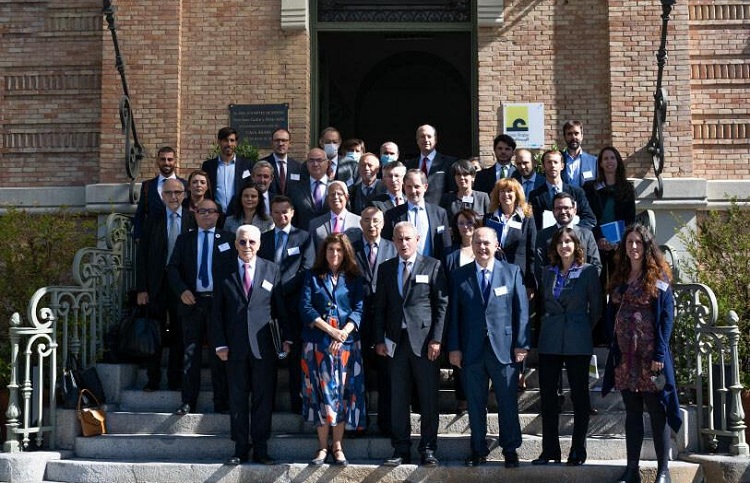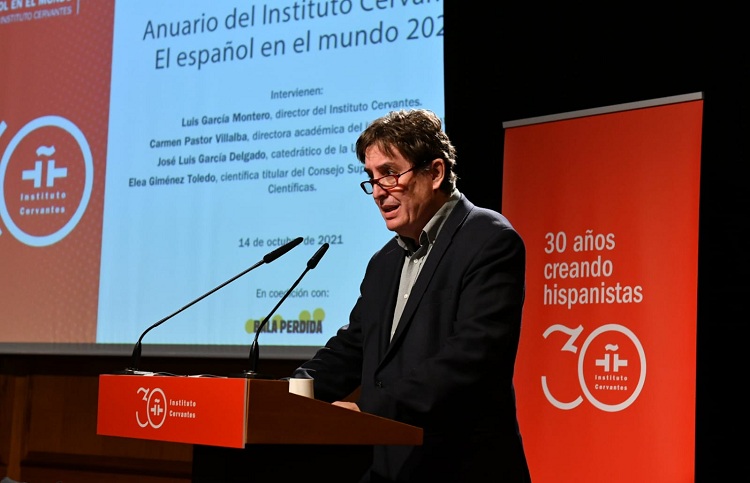The Diplomat
Casa Árabe hosted at its headquarters in Madrid the fifth annual forum of the MedThink 5+5 network, in which experts, professionals and political leaders debated on the future transformations facing the Western Mediterranean.
In the framework of the Spanish co-presidency of the 5+5 Dialogue forum in 2021 and on the basis of the Tunis Declaration, adopted on October 22, 2020 during the 16th Meeting of Foreign Ministers of the 5+5 Dialogue, the European Institute of the Mediterranean (IEMed) and the Union for the Mediterranean (UfM) organized this fifth annual forum following the success of the previous editions, which took place in Barcelona, Lisbon, Algiers and Malta.
Held at Casa Árabe’s headquarters on October 13 and 14 under the theme What are the prospects for the 5+5 Dialogue forum in a changing Mediterranean? Adapting together to post-COVID-19 realities, the meeting provided an opportunity to discuss the three major transformations that may affect the future of the Western Mediterranean: the change in the production model, digitalization and the transition to sustainability.
The Dialogue 5+5 forum was created in 1995 with the aim of promoting cooperation and collaboration between the ten countries of the Western Mediterranean: five from the North (Spain, France, Italy, Malta and Portugal) and five from the South (Algeria, Libya, Morocco, Mauritania and Tunisia). The MedThink 5+5 network, meanwhile, was established in 2016 with the support of more than 30 institutions from the 5+5 Dialogue countries with the aim of enabling dialogue through conferences, seminars and colloquia with key players in the region.
During the inauguration, reported by the specialized international affairs magazine Atalayar, the State Secretary for Foreign and Global Affairs, Ángeles Moreno Bau, assured that the European Union and Spain are committed to the development of the Euro-Mediterranean region and affirmed that climate change is “the greatest challenge of our time”. “Our region is ideal for developing renewable energies,” he added.
At the same event, Senén Florensa, diplomat and executive president of the European Institute of the Mediterranean (IEMed), said that “the need for cooperation is stronger than ever” and expressed his wish that the great challenges facing the region, such as sustainable development or digitalization, “can be turned into opportunities”.
For his part, Nasser Kamel, Secretary General of the Union for the Mediterranean, declared that “the fact that this event is being held in Madrid demonstrates Spain’s willingness and support for the 5+5 Dialogue, but also Spain’s support for cooperation between the southern and northern shores of the Mediterranean.” “Spain is one of the pillars of this cooperation”, he added. Likewise, Kamel warned that the crisis generated by COVID-19 “has revealed the fragilities and inequalities not only within countries, but also between them,” because “the economic and social impact of this crisis has affected the most disadvantaged areas.” In this context, he said, the three pillars on which COVID’s recovery must be based are regional integration, inclusive development and ecological transition, because “sustainability means facing and building a better future, taking into account the climate challenges that exist in these regions”, recognized “for their natural and cultural wealth”.







